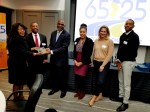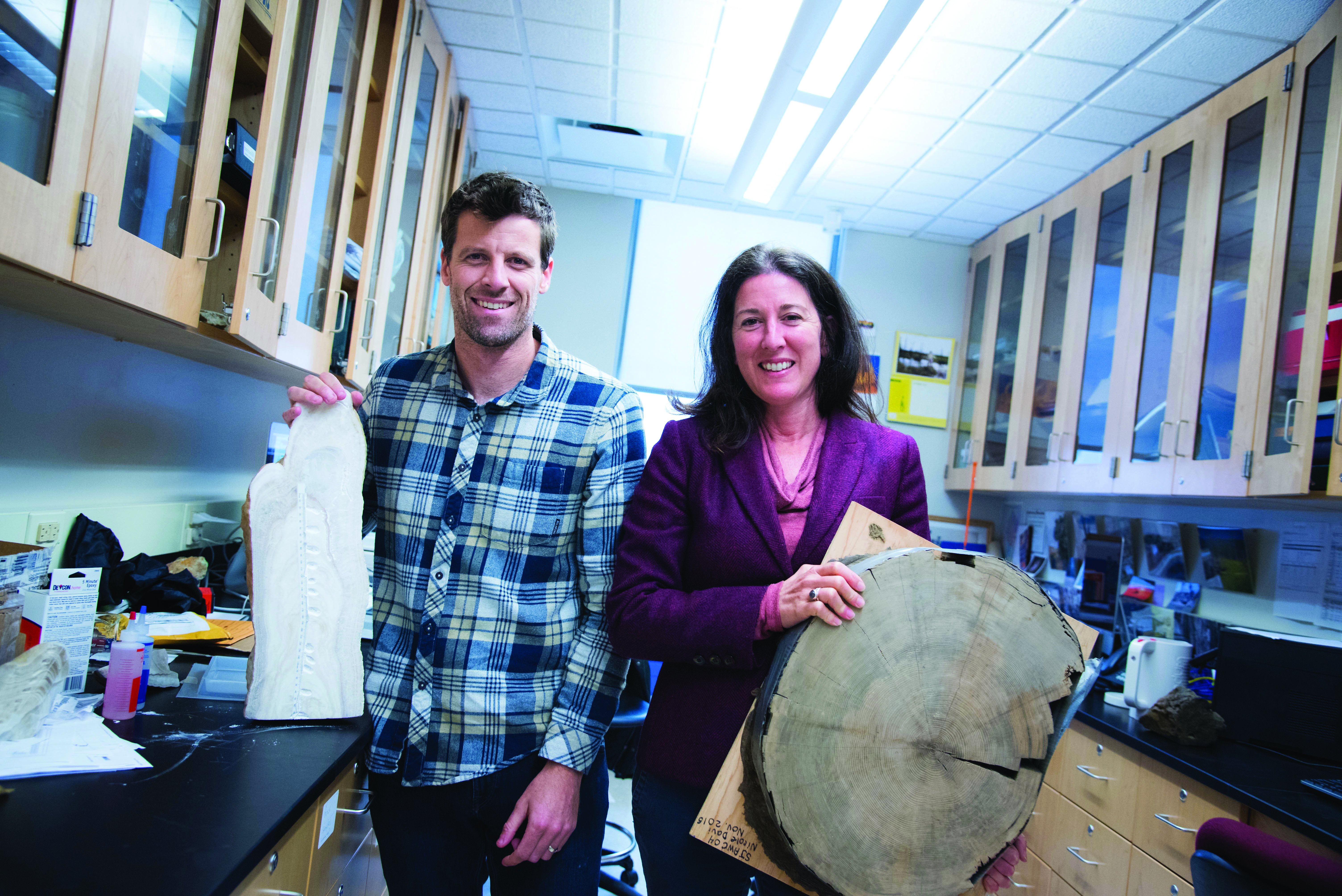‘The Equity Imperative’: We Are All Important to New Jersey’s Future
By Rochelle Hendricks
Secretary of Higher Education

As 2017 draws to a close, it is time for us to reflect on the progress we have made and the challenges ahead of us. A few weeks ago, my office hosted an event entitled, “65 by ’25… Many Paths, One Future: The Equity Imperative,” at the Educational Testing Service (ETS) in Princeton. We heard an enlightening address from Dr. Michael T. Nettles, ETS senior vice president for research, and recognized four New Jersey programs for excellence and equity in education.
In New Jersey, we have announced a campaign to increase the number of working adults who have some level of education or training beyond high school. By 2025, our goal is to have 65 percent of our workforce attain a postsecondary credential – a steep increase from the current 50.2 percent.
While highlighting data in his recently released report, “Challenges and Opportunities in Achieving the National Postsecondary Degree Attainment Goals,” Dr. Nettles, as he always does, told it to us straight. We are a nation facing complex, systemic problems. He shared some disturbing, dismal data demonstrating how diverse populations have been adversely impacted, but also provided data about programs around the country that are achieving positive, dramatic results.
Will we achieve our goal?
It depends, Dr. Nettles said.
His study found that Asian Americans between the ages of 25 to 34 living in the United States already achieved the national attainment goal of 60 percent three years ago.
White female workers will achieve the national 60 percent goal by 2019. White men? Not until 2038.
Large swaths of our increasingly diverse population, however, are not projected to reach the 60 percent goal even if you look forward all the way to the year 2060.
Remember, this is for the national goal of 60 percent. Because New Jersey will need more highly skilled workers, our goal is five points higher than the national goal.
Will N.J. be ready? Will we meet our goals?
The answer depends on our resolve. We must be determined not to accept excuses for failure. It is imperative that we find ways to help all of our citizens.
In New Jersey, where we have an increasingly diverse population, we simply cannot accept that hundreds of thousands of workers, families and school children will be denied a prosperous future because we failed to act today.
Fortunately, there are trailblazers in New Jersey – exemplars and innovators who are leading the way in achieving outstanding results with the most vulnerable populations identified by Dr. Nettles. We honored four of them with our “Equity Trailblazer Award” at the Princeton event:
Gateway to College, Camden County College. Recognized as being the best in the nation, the Gateway to College program at Camden County College has given hundreds of students a second chance to succeed in life. In just four years, the Camden Gateway program has achieved impressive results in helping students gain their high school diploma and increase their readiness for college. Led by Dr. Irvin Sweeney, students have maintained their commitment to their studies, as shown by the data. From 2011 to 2014, the average attendance rate was over 94 percent. The persistence/retention rate was 85.6 percent, one of the highest in the nation, according to the Gateway to College National Network.
Newark City of Learning Collaborative (NCLC). The NCLC is a citywide postsecondary network, committed to increasing the percentage of city residents with postsecondary degrees, certificates and quality credentials from the current 17 percent to 25 percent by 2025. The collaborative is composed of over 60 organizations, including higher education institutions, the City of Newark, the Newark Workforce Investment Board, the Newark Housing Authority, the private sector, philanthropic organizations and community-based organizations. Three months ago, the NCLC hired Reginald Lewis to join the NCLC as its Executive Director and lead this vital collective impact project toward realizing its ambitious agenda. NCLC is one of the signature initiatives at Rutgers University – Newark.
The Garden State Louis Stokes Alliance for Minority Participation (GS LSAMP). Led by Dr. Alexander Gates, GS LSAMP has been successfully encouraging students to achieve in Science, Technology, Engineering and Math (STEM). Rutgers University–Newark has received a $3.5 million grant to continue its efforts in leading a statewide program to increase minority representation in STEM.
The grant, awarded by the National Science Foundation (NSF), will fund the Garden State Louis Stokes Alliance for Minority Participation Phase II (GS-LSAMP II) from July 2014 through June 2019. GS-LSAMP II will expand upon the success of its precursor, GS-LSAMP, which exceeded its goal of doubling the number of minority students who earn their bachelor’s degrees in STEM. Approximately 2,000 students have completed the program since its inception in 2009.
The Rowan Work & Learn Consortium. Rowan College at Gloucester County (RCGC) and Rowan University, in partnership with state and county agencies, has formed the Rowan Work & Learn Consortium. The Consortium will make earning degrees and certificates more flexible, affordable and attainable for students. At the center of the consortium is a stackable credential program that allows students to earn credit for prior work experiences and educational achievements. Michael Plagianakos accepted our award for Dr. Frederick Keating, president of Rowan College at Gloucester County (RCGC) and Dr. Ali Houshmand president of Rowan University.
My thanks to Dr. Nettles for his excellent report and stimulating keynote address and to the exemplary program panelists for their outstanding presentations.
During this season of hope and peace, we are reminded that each of us can contribute to making the future better and brighter for all of us.
Click on the thumbnails to view the image gallery
- Rochelle Hendricks, secretary of higher education, and Michael T. Nettles, senior vice president and the Edmund W. Gordon chair of ETS’s Policy Evaluation & Research Center (PERC)
- Alexander Gates, Ph.D., board of governors distinguished service professor, department of earth & environmental science and Secretary Hendricks
- Secretary Hendricks and the Newark City of Learning Collaborative (NCLC), from left: Craig Stanley; Reginald Lewis; Chanel Donaldson; Monica Ward; and Anthony Jones
- OSHE Director of Finance & SLDS Collections Steward Marie Virella leads the Table Talks portion of the event.
- Secretary Hendricks and the Gateway to College – Camden County College, from left: Faith Grant; Marilyn Martinez; Margo Venable; David Edwards; Don Borden; and Dr. Irvin Sweeney
- Secretary Hendricks and Rowan College at Gloucester County’s Michael Plagianakos and Rory McElwee
Categories: Secretary's Column

 As 2017 draws to a close, it is time for us to reflect on the progress we have made and the challenges ahead of us. A few weeks ago, my office hosted an event entitled, “65 by ’25… Many Paths, One Future: The Equity Imperative,” at the Educational Testing Service (ETS) in Princeton. We heard an enlightening address from Dr. Michael T. Nettles, ETS senior vice president for research, and recognized four New Jersey programs for excellence and equity in education.
As 2017 draws to a close, it is time for us to reflect on the progress we have made and the challenges ahead of us. A few weeks ago, my office hosted an event entitled, “65 by ’25… Many Paths, One Future: The Equity Imperative,” at the Educational Testing Service (ETS) in Princeton. We heard an enlightening address from Dr. Michael T. Nettles, ETS senior vice president for research, and recognized four New Jersey programs for excellence and equity in education.











